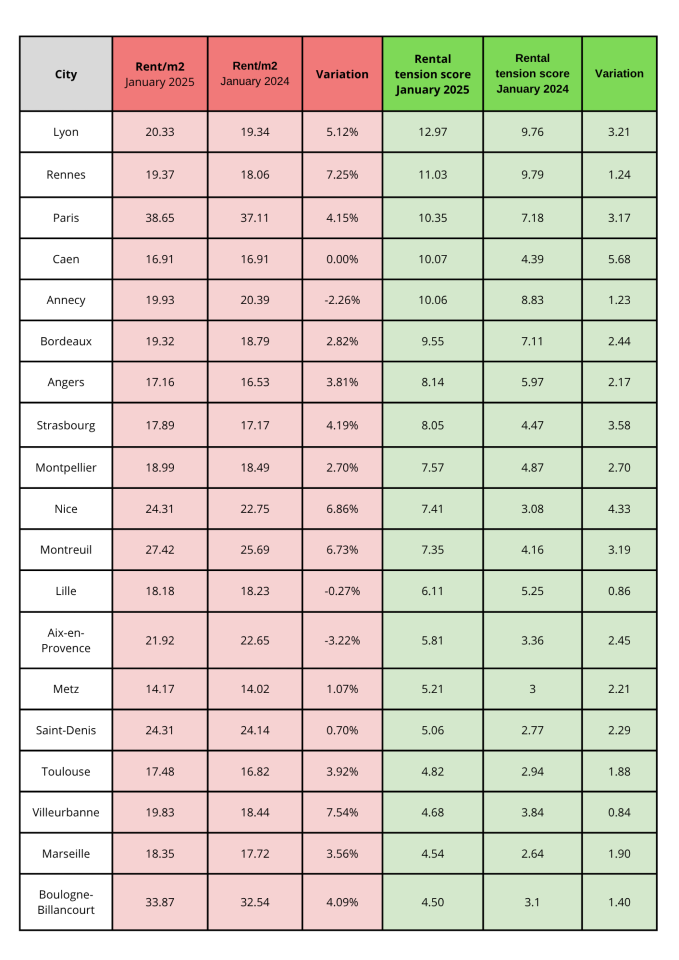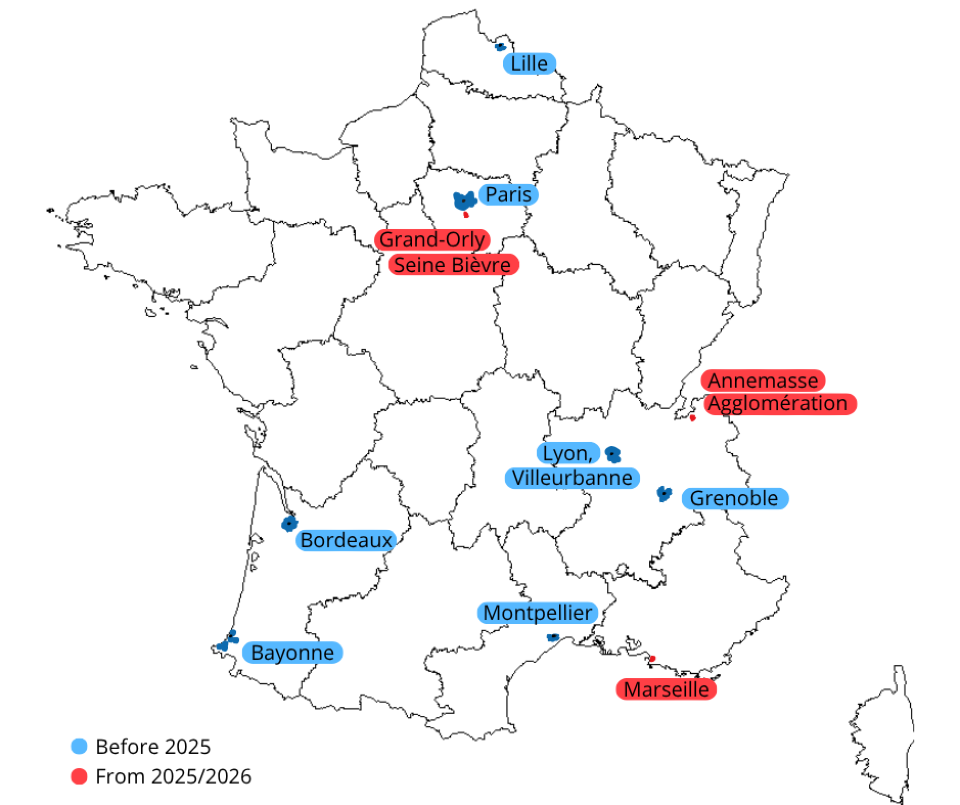Rent Control: Current Situation

As rent control, a mechanism introduced by the ELAN law, celebrates its sixth anniversary, the Relocation Department of Home Conseil Relocation provides an update on the situation.
A Still-Limited Impact of Rent Control
The rent control system aims to reduce the chronic housing market tension in France, which is driven by a shortage of rental properties compared to demand. By regulating rents, lawmakers and public authorities intend to make it easier for everyone to find a rental property while limiting the constant increase in rent prices.
With some perspective on this mechanism and its effects, it is clear that its impact remains limited, applying, for example, to only 4 out of 10 properties on the market in the Paris region.
Similarly, in 2024, the average rent in France (€723 including charges for an average surface area of 42.5m²) increased by 3.3%, above the observed 2% inflation rate.
Thus, despite rent control already being in place in Lyon, the city still topped the ranking of cities with the highest rental pressure (ahead of Rennes and Paris) with 12.97 applicants per available property!

Moreover, the rent caps defined by the system are often bypassed by landlords through the application of a “rent supplement”, which must be specified in the lease and justified by particular features of the property.
However, conditions such as outdated insulation, a direct view of less than 10 meters, or shared bathroom facilities make applying a rent supplement impossible.
In cases of non-compliance with the rent cap, tenants may appeal to the Departmental Conciliation Commission or take legal action in case of disagreement. The financial penalties for individuals and legal entities cited in our 2019 note are still in effect, although rarely applied in practice.
At the time, we questioned the sustainability of this measure and its impact on the rental market. Today, the mechanism — still experimental and pending permanent adoption by the end of 2026 — is the subject of a report by APUR (Atelier Parisien d’Urbanisme).
This report highlights a “moderation of rent increases attributable to rent control in Paris by -5.2% compared to the increase that would have occurred without regulation. The effect grows over time (-2.5% between mid-2019 and mid-2020, -5.9% between mid-2022 and mid-2023, and -8.2% between mid-2023 and mid-2024), benefiting smaller units more than larger ones.”
Econometric analysis extended to five other regulated cities, along with reports from the Rent Observatory, therefore demonstrates the growing effectiveness of the system, which tends to strengthen over time.
Geographic Expansion of Rent Control
Currently, in addition to the inner suburbs of Paris, the following areas already apply rent control:
- Bordeaux
- Lomme, Lille, Hellemmes
- Lyon and Villeurbanne
- Grenoble-Alpes Metropolis
- Montpellier
- The Est Ensemble territory
- The Plaine Commune territory
- The Basque Country urban community
In total, around fifty municipalities are affected.
On July 1, 2025, new reference rents come into effect in Paris, under the rent control system established by the ELAN law. These rents, adjusted upward this year, are defined by a prefectoral decree and apply to all leases signed or renewed in the capital.
Additionally, the system will be extended to three new zones.
The Ministry of Housing has approved several local authorities’ applications for rent control under the 3DS law. The new zones include:
- Grand-Orly Seine Bièvre (11 municipalities in the inner suburbs)
- Annemasse Agglomeration (Haute-Savoie, near Geneva)
- City of Marseille
These areas will now have to set reference rents applicable to all leases, except those governing “coliving” properties.

In Paris, landlords must ensure that the rent (excluding charges) does not exceed the increased reference rent published for the property type, neighbourhood, and lease signing date.
An official simulator provided by the Regional and Interdepartmental Directorate for Housing and Accommodation allows landlords to check their property’s reference rent based on its characteristics. Any violation may result in the aforementioned penalties.
Rent control remains an evolving topic, and our Relocation Department continues to monitor developments closely to ensure proper implementation for the benefit of the employees we support.
Sources :
- Official simulator : DRIHL Paris – Référenceloyer
- Complete website on the system: drihl.ile-de-france.gouv.fr
- Our article from 2019 about rent control
- Le Monde - "How does rent control work" article in French
- Le Monde - "The Coliving" article in French
- APUR report - "The impact of rent control in Paris"
- Reports from the Rent Observatory
- Locservice.fr - Rental market pressure analysis in French
- Locservice.fr - Rental market in France in French

